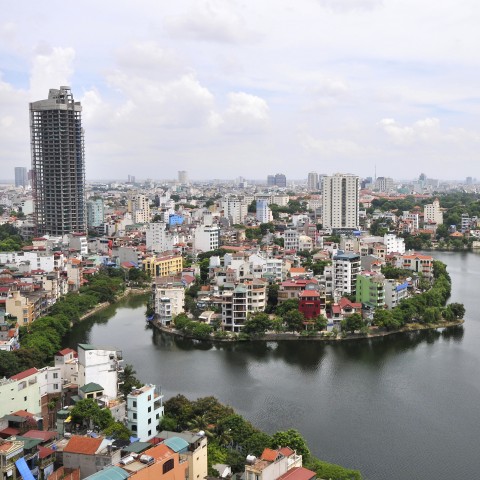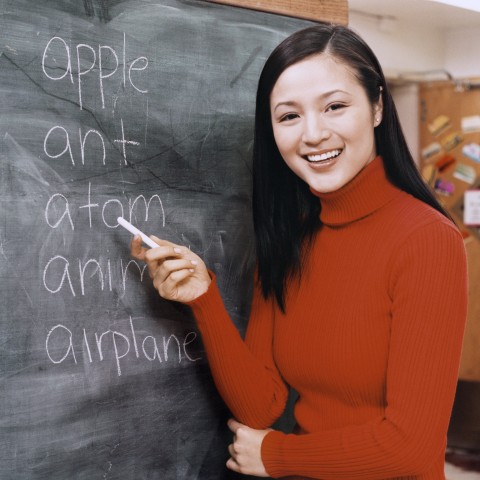
You’re learning to speak Vietnamese, and it’s going well. Your confidence is growing! So much so that you feel ready to share your experiences on social media—in Vietnamese.
At Learn Vietnamese, we make this easy for you to get it right the first time. Post like a boss with these phrases and guidelines, and get to practice your Vietnamese in the process.

1. Talking about Your Restaurant Visit in Vietnamese
Eating out is fun, and often an experience you’d like to share. Take a pic, and start a conversation on social media in Vietnamese. Your friend will be amazed by your language skills…and perhaps your taste in restaurants!
Phát eats at a restaurant with his friends, posts an image of the group, and leaves this comment:

POST
Let’s break down Phát’s post.
Chúng ta hãy gọi món nhá.
“Let’s order some food.”
1- Chúng ta hãy gọi
First is an expression meaning “Let’s order.”
“Gọi” usually means “call,” but it is used in restaurants to mean “order.”
2- món nhá.
Then comes the phrase – “some food..”
“Nhá” is usually added at the end of a sentence. It indicates that an action is going to be done and the speaker expects the listener will agree with it. It is a type of yes-no question in English but with a softer voice. It could be roughly translated as “Is it okay if this action is done?” For example, “Tôi đi trước nhá” (“I will go first, is that okay?” ). The speaker is going to go first and expects the listener to agree.
COMMENTS
In response, Phát’s friends leave some comments.
1- Thực đơn hôm nay có gì?
His girlfriend, Yến, uses an expression meaning – “What’s on the menu for today?”
Use this question if you’re inquisitive and want information.
2- Nhà hàng đó trông được đấy.
His high school friend, Ngân, uses an expression meaning – “That restaurant looks nice.”
Use this expression to give a compliment.
3- Lần trước tôi tới đó nhưng phục vụ hơi chậm.
His college friend, Tú, uses an expression meaning – “I went there last time, but the service was quite slow.”
Use this expression to share a personal experience.
4- Đồ ăn ở đó ngon thật.
His neighbor, Lý, uses an expression meaning – “The food there is really delicious.”
This is another personal experience to share.
VOCABULARY
Find below the key vocabulary for this lesson:
đồ ăn: “food”
ngon: “delicious, tasty”
nhà hàng: “restaurant”
phục vụ: “service”
thực đơn: “menu”
trông: “to look like”
món: “course of dish”
So, let’s practice a bit. If a friend posted something about having dinner with friends, which phrase would you use?
Now go visit a Vietnamese restaurant, and wow the staff with your language skills!
2. Post about Your Mall Visit in Vietnamese
Another super topic for social media is shopping—everybody does it, most everybody loves it, and your friends on social media are probably curious about your shopping sprees! Share these Vietnamese phrases in posts when you visit a mall.
Yến shop with her sister at the mall, posts an image of the two of them, and leaves this comment:

POST
Let’s break down Yến’s post.
Đi mua sắm trước khi đi du lịch.
“Go shopping before you travel.”
1- Đi mua sắm
First is an expression meaning “Go shopping.”
We can say “mua sắm” (“shopping” ), but Vietnamese people usually add “đi” in front of a verb to indicate that you need to go do that action. For example, “đi mua sắm” (“go shopping” ), “đi du lịch” (“go traveling” ), “đi ăn cưới” (“go attend a wedding” ).
2- trước khi đi du lịch.
Then comes the phrase – “before you travel..”
Trước = “before,” khi/ lúc = “when”
Trước khi/ trước lúc = “before when”
Trước = “in front of” + place (trước nhà: “In front of the house” )
COMMENTS
In response, Yến’s friends leave some comments.
1- Cái váy đó hợp với chị đấy.
Her neighbor, Lý, uses an expression meaning – “That dress suits you well.”
Use this expression to give a compliment.
2- Lâu lắm chưa gặp em gái bạn. Bảo nó tư vấn thời trang cho.
Her high school friend, Trang, uses an expression meaning – “I haven’t seen your younger sister in a long time. Tell her to give you some fashion advice.”
Use this expression to be funny.
3- Có trung tâm thương mại mới mở, chắc sẽ sales nhiều lắm đấy.
Her boyfriend’s high school friend, Ngân, uses an expression meaning – “A new mall just opened, so there should be a lot of sales. ”
Use this expression to share information and offer an opinion.
4- Quần áo đầy tủ rồi mà vẫn còn mua nữa.
Her boyfriend, Phát, uses an expression meaning – “Your wardrobe is full of clothes, but you still buy stuff.”
Use this expression to tease the poster.
VOCABULARY
Find below the key vocabulary for this lesson:
hợp: “to suit”
mua sắm: “shopping”
Quần áo: “clothes”
sành điệu: “stylish”
tủ: “wardrobe”
trung tâm thương mại: “shopping mall”
tư vấn: “to consult”
So, if a friend posted something about going shopping, which phrase would you use?
3. Talking about a Sport Day in Vietnamese
Sports events, whether you’re the spectator or the sports person, offer fantastic opportunity for great social media posts. Learn some handy phrases and vocabulary to start a sport-on-the-beach conversation in Vietnamese.
Phát plays with his friends at the beach, posts an image of the team, and leaves this comment:

POST
Let’s break down Phát’s post.
Chơi bóng chuyền ở đây được đấy.
“It’s good playing volleyball here.”
1- Chơi bóng chuyền ở đây
First is an expression meaning “play volleyball here.”
“Đấy” is added to make a sentence more conversational and smooth (i.e., informal).
2- được đấy.
Then comes the phrase – “okay.”
“Được” means “fine, okay.” Sometimes people say “ổn” with the same meaning.
COMMENTS
In response, Phát’s friends leave some comments.
1- Anh thuận tay trái à? Tiếc quá! Quả đó lẽ ra ăn rồi!
His girlfriend’s nephew, Tuấn, uses an expression meaning – “Are you left-handed? What a pity! That hit should’ve scored!”
Use these phrases to comment on the game.
2- Không phải thể hiện quá đâu.
His girlfriend’s high school friend, Trang, uses an expression meaning – “No need to show off too much.”
Use this expression if you wish to tease the poster a bit.
3- Anh đập bóng rất điêu luyện.
His supervisor, Chi, uses an expression meaning – “You hit the ball very skillfully.”
Use this expression to compliment the poster.
4- Sao không gọi tôi chơi với?
His college friend, Tú, uses an expression meaning – “Why didn’t you call and ask me to play?”
Use this expression to show you are feeling frivolous.
VOCABULARY
Find below the key vocabulary for this lesson:
bóng chuyền: “(lit. to eat) to score”
bóng chuyền: “volleyball”
chơi: “to play”
đập bóng: “hit the ball”
điêu luyện: “skillful”
tiếc quá: “what a pity”
thuận tay trái: “left-handed”
Which phrase would you use if a friend posted something about sports?
But sport is not the only thing you can play! Play some music, and share it on social media.
4. Share a Song on Social Media in Vietnamese
Music is the language of the soul, they say. So, don’t hold back—share what touches your soul with your friends!
Yến shares a song she just heard at a party, posts an image of the artist, and leaves this comment:

POST
Let’s break down Yến’s post.
Dạo này có bài này đang nổi.
“Recently, this song has been a hit.”
1- Dạo này có bài này
First is an expression meaning: “Recently, this song”.
Bài is a shortened version of “bài thơ” (“poem” ), “bài văn” (“literature” ), “bài hát” (“song” ), “bài học” (“lesson” ). Depending on the context, people will understand what the speaker is talking about.
2- đang nổi.
Then comes the phrase – “has been a hit.”
“Nổi”means “floating”. We use this word to indicate that a song is a hit or a singer is famous. (ca sỹ này mới nổi = “This singer has recently become famous.” )
COMMENTS
In response, Yến’s friends leave some comments.
1- Bài hát đó đạo nhạc đấy.
Her college friend, Tú, uses an expression meaning – “That song is a rip-off.”
Use this to express an opinion that opposes the poster’s.
2- Cậu lạc hậu quá!
Her high school friend, Trang, uses an expression meaning – “You are so outdated!”
This is another opinion that opposes the poster’s.
3- Nhạc này nghe đau đầu quá!
Her supervisor, Chi, uses an expression meaning – “I get a headache when listening to this music!”
This is a strong statement of dislike.
4- Ca sỹ này có nhiều bài hit quá!
Her boyfriend’s high school friend, Ngân, uses an expression meaning – “This singer has many hits!”
Use this expression to make conversation.
VOCABULARY
Find below the key vocabulary for this lesson:
bài hát: “song”
bài hit: “hit song”
ca sỹ: “singer”
đạo nhạc: “plagiarized music”
đau đầu: “headache”
lạc hậu: “outdated”
nổi: “hot”
Which song would you share? And what would you say to a friend who posted something about sharing music or videos?
Now you know how to start a conversation about a song or a video on social media!
5. Vietnamese Social Media Comments about a Concert
Still on the theme of music—visiting live concerts and shows just have to be shared with your friends. Here are some handy phrases and vocab to wow your followers in Vietnamese!
Phát goes to a concert, posts an image of it, and leaves this comment:

POST
Let’s break down Phát’s post.
Tôi rất vui vì chúng ta có chỗ ngồi tốt trong buổi hòa nhạc.
“I’m glad we had nice seats at the concert.”
1- Tôi rất vui
First is an expression meaning “I’m glad.”
“Tôi” (“I” ) is a general personal pronoun in Vietnamese. However, depending on the context, the pronoun should be changed in both formal and informal cases. For example, if Phát is talking to his friend, he might say “Tớ/ Mình rất vui” (“I am glad.” ), or “Em/ Cháu rất vui” (“I am glad.” ) when talking to his boss.
2- vì chúng tôi có chỗ ngồi tốt trong buổi hòa nhạc.
Then comes the phrase – “because we had nice seats at the concert..”
Chỗ ngồi (“seat” ) (Noun) + tốt (“good” ) (Adjective). In Vietnamese, adjectives are placed after the noun they modify.
Vì = “because”
Vì + Noun/ Clause
Vì trời mưa = “because it rains”
Vì mưa = “because of rain”
COMMENTS
In response, Phát’s friends leave some comments.
1- Vé vào cửa bao nhiêu tiền? Anh chị mua vé đứng hay vé ngồi?
His girlfriend, Yến, uses an expression meaning – “How much was the ticket? Did you buy standing or seated tickets?”
Use this expression if you wish to partake in the conversation by asking for more information.
2- Tôi thích ca sỹ này lắm.
His neighbor, Lý, uses an expression meaning – “I like this singer very much.”
Use this comment to express your approval.
3- Không biết anh ta hát live hay nhép nhỉ?
His girlfriend’s nephew, Tuấn, uses an expression meaning – “I’m not sure if he’s singing live or lip syncing. ”
Use this expression to make an observation.
4- Có nhiều ca sỹ nổi tiếng tham gia lắm.
His supervisor, Chi, uses an expression meaning – “There were many famous singers who participated.”
Use this expression to make conversation by making an observation.
VOCABULARY
Find below the key vocabulary for this lesson:
buổi hòa nhạc: “concert”
chỗ ngồi: “seat”
nổi tiếng: “famous”
vé đứng: “standing ticket”
vé ngồi: “sitting ticket”
vé vào cửa: “entrance ticket”
tham gia: “to participate”
If a friend posted something about a concert , which phrase would you use?
6. Talking about an Unfortunate Accident in Vietnamese
Oh dear. You broke something by accident. Use these Vietnamese phrases to start a thread on social media. Or maybe just to let your friends know why you are not contacting them!
Yến accidentally breaks her mobile phone, and leaves this comment:

POST
Let’s break down Yến’s post.
Hôm qua điện thoại của tôi bị rơi.
“Yesterday, my phone fell.”
1- Hôm qua điện thoại của tôi
First is an expression meaning “Yesterday, my phone.”
We can say either “điện thoại của tôi” (“phone of mine” ) or “điện thoại tôi” (“my phone” ).
2- bị rơi.
Then comes the phrase – “fell.”
“Bị rơi’ is in passive voice. However, we can also say “rơi”, which means the phone dropped down by itself, when we do not want to indicate that you or someone else dropped it.
COMMENTS
In response, Yến’s friends leave some comments.
1- Có làm sao không?
Her boyfriend, Phát, uses an expression meaning – “Is it okay?”
Ask this question if you want to know more details.
2- Có dán kính cường lực không?
Her college friend, Tú, uses an expression meaning – “Did you have a protection film (applied) on it?”
Another question to ask if you want to know more details.
3- Dù sao cũng may là không rơi vào bồn cầu. Hay rơi vào bồn cầu thật?
Her high school friend, Trang, uses an expression meaning – “Luckily, it didn’t fall into the toilet. Or did it?”
Use this expression to be funny.
4- May mà không bị mất.
Her boyfriend’s high school friend, Ngân, uses an expression meaning – “Luckily, it wasn’t lost.”
Use this expression to show be supportive by pointing out something positive.
VOCABULARY
Find below the key vocabulary for this lesson:
bồn cầu: “toilet”
dán: “to paste, to stick”
dù sao: “anyway”
kính cường lực: “protection film”
may: “luckily”
mất: “to lose”
rơi: “to fall”
If a friend posted about having broken something by accident, which phrase would you use?
So, now you know how to describe an accident in Vietnamese. Well done!
7. Chat about Your Boredom on Social Media in Vietnamese
Sometimes, we’re just bored with how life goes. And to alleviate the boredom, we write about it on social media. Add some excitement to your posts by addressing your friends and followers in Vietnamese!
Phát gets bored at home, and leaves this comment:

POST
Let’s break down Phát’s post.
Chán như con gián!
“Bored as cockroaches!”
1- Chán
First is an expression meaning “Bored.”
“Chán” (“bored” ) and “gián” (“cockroach” ) share a similar rhythm, so people usually say “chán như con gián” to express boredom.
2- như con gián!
Then comes the phrase – “as cockroaches!”
“Như” is a shorter version of “giống như” and means “same as/like.” For example, “Anh ta như một ngôi sao / Anh ta giống như một ngôi sao” = “He’s like a star.”
COMMENTS
In response, Phát’s friends leave some comments.
1- Đời không như là mơ, tình không như là thơ.
His girlfriend’s nephew, Tuấn, uses an expression meaning – “Life is not (like) a dream, and love is not (like) a poem.”
Use this expression to show you are feeling cynical.
2- Cuộc đời vẫn đẹp sao, tình yêu vẫn đẹp sao!
His high school friend, Ngân, uses an expression meaning – “How wonderful life is, and how wonderful love is!”
Use this expression if you are feeling optimistic.
3- Ra đây làm vài cốc bia là lại vui ngay.
His supervisor, Chi, uses an expression meaning – “Come here and get some beer. You’ll be cheerful in no time.”
Use these phrases to make a suggestion and an observation in order to be helpful.
4- Đi đâu đấy giải khuây đi.
His neighbor, Lý, uses an expression meaning – “Go somewhere and relax.”
This is another suggestion to be helpful.
VOCABULARY
Find below the key vocabulary for this lesson:
chán: “bored”
con gián: “cockroach”
đời: “life”
giải khuây: “to relax”
(giấc) mơ: “dream”
thơ: “poem”
tình: “love”
If a friend posted something about being bored, which phrase would you use?
Still bored? Share another feeling and see if you can start a conversation!
8. Exhausted? Share It on Social Media in Vietnamese
Sitting in public transport after work, feeling like chatting online? Well, converse in Vietnamese about how you feel, and let your friends join in!
Yến feels exhausted after a long day at work, posts an image of herself looking tired, and leaves this comment:

POST
Let’s break down Yến’s post.
Cuối cùng cũng xong.
“Finally finished.”
1- Cuối cùng
First is an expression meaning “Finally.”
“Cuối cùng” (“finally” ) is used to indicate that the speaker has been through a long process, though the speaker does not mention anything about the process.
“Cuối cùng” can also be used when you want to list something, for example, “thứ nhất” (“first” ), “thứ hai” (“second” ), “cuối cùng” (“finally” ).
2- cũng xong.
Then comes the phrase – “finished.”
“Cũng” is translated as “also”. But in this case, “cũng” indicates the speaker is relieved that he has worked hard or a long time and is finally finished.
“Xong” and “hoàn thành” both mean “complete,” but “xong” is used more in conversation.
COMMENTS
In response, Yến’s friends leave some comments.
1- Đang phải chạy tiến độ.
Her boyfriend, Phát, uses an expression meaning – “Running on schedule.” (lit. “Running for the deadline.” )
Use this expression to make an observation.
2- Cố lên!
Her neighbor, Lý, uses an expression meaning – “Fighting!”
Use this expression to show be encouraging.
3- Nước đến chân mới nhảy.
Her boyfriend’s high school friend, Ngân, uses an expression meaning – “Jump only when the water touches your feet.”
Use this expression to show you are feeling that the poster could have done something to prevent this. This is an idiomatic saying that roughly means the same as: “Wait for something to break before trying to fix it”.
4- Sướng thế. Tôi vẫn đang phải làm thêm giờ đây.
Her college friend, Tú, uses an expression meaning – “Good for you. I still have to work overtime.”
Use these phrases to partake in the conversation by sharing personal information.
VOCABULARY
Find below the key vocabulary for this lesson:
chân: “foot”
chạy: “to run”
cuối cùng: “finally”
tiến độ: “progress”
làm thêm giờ: “work overtime”
nước: “water”
nhảy: “to jump”
If a friend posted something about being exhausted, which phrase would you use?
Now you know how to say you’re exhausted in Vietnamese! Well done.
9. Talking about an Injury in Vietnamese
So life happens, and you manage to hurt yourself during a soccer game. Very Tweet-worthy! Here’s how to do it in Vietnamese.
Phát suffers a painful injury, posts an image of it, and leaves this comment:

POST
Let’s break down Phát’s post.
Chắc ngày mai phải đi chụp X quang.
“Maybe tomorrow I have to get an X-ray.”
1- Chắc ngày mai
First is an expression meaning “Maybe tomorrow”.
You can use this phrase when you’re unsure of what will happen tomorrow.
2- phải đi chụp X quang.
Then comes the phrase – “I have to get an X-ray.”
“Chụp” (“take” ) is usually used for “chụp ảnh” (“take photo” ). It is also used for “chụp x-quang” (“take X-ray” ).
COMMENTS
In response, Phát’s friends leave some comments.
1- Anh nên đi khám lại đi.
His neighbor, Lý, uses an expression meaning – “You should go for a checkup.”
Use this expression to make a suggestion to be helpful.
2- Đừng lo. Anh sẽ sớm bình phục thôi.
His high school friend, Ngân, uses an expression meaning – “Don’t worry. You’ll recover soon.”
Use this expression to be encouraging and supportive.
3- Anh thấy đỡ hơn chưa?
His girlfriend, Yến, uses an expression meaning – “Do you feel better?”
Ask this question if you are feeling concern and caring.
4- Anh đang nằm viện X đúng không? Bác sỹ ở viện đó rất tận tâm.
His supervisor, Chi, uses an expression meaning – “Are you in X hospital? Doctors in that hospital are very dedicated.”
Use these phrases if you wish to offer advice and be helpful.
VOCABULARY
Find below the key vocabulary for this lesson:
bình phục: “to recover”
đỡ: “better”
khám lại: “to recheck”
mổ: “to operate (on a patient)”
nằm viện: “to hospitalize”
tận tâm: “dedicated”
x-quang: “x-ray”
If a friend posted something about being injured, which phrase would you use?
We love to share our fortunes and misfortunes; somehow that makes us feel connected to others.
10. Starting a Conversation Feeling Disappointed in Vietnamese
Sometimes things don’t go the way we planned. Share your disappointment about this with your friends!
Yến feels disappointed about today’s weather, posts an image of it, and leaves this comment:

POST
Let’s break down Yến’s post.
Quanh năm giặt váy phải ngày trời mưa.
“Clear skies year round, but it rains on laundry day. ”
1- Quanh năm giặt váy
First is an expression meaning “Clear skies year round”.
This is slang and usually has a complaining tone. In this sentence, the person complains that the weather is good every day, but it’s bad when she does her laundry.
It’s also used in other situations to mean that the situation is usually good but turns unfavorable when someone does something. It indicates that this person is not lucky.
2- phải ngày trời mưa.
Then comes the phrase – “but it rains on laundry day.”
Weather is different in the North and South of Vietnam. While the North has four seasons (spring, summer, fall, and winter), the South has two seasons (dry season, rainy season). Rainy season in the South usually starts in May and lasts until November. In the North, light rain occurs in February and March, while heavy rain occurs in July and August.
COMMENTS
In response, Yến’s friends leave some comments.
1- Trời u ám quá!
Her boyfriend, Phát, uses an expression meaning – “It’s so overcast.”
Use this expression to be in agreement.
2- Không biết ngoài đường có bị ngập không.
Her college friend, Tú, uses an expression meaning – “I don’t know if the streets are flooded.”
Make this observation if you wish to contribute to the conversation.
3- Buổi mít ting ngoài trời hôm nay phải hoãn rồi.
Her supervisor, Chi, uses an expression meaning – “The outdoor meeting today has to be postponed.”
This is another phrase to use when you wish to contribute to the conversation by sharing news.
4- Trời mưa mát quá!
Her boyfriend’s high school friend, Ngân, uses an expression meaning – “Rain is so cool.”
Use this expression to share a positive opinion.
VOCABULARY
Find below the key vocabulary for this lesson:
giặt: “to wash”
hoãn: “to postpone”
mít ting: “meeting”
ngập: “flooded”
ngoài trời: “outdoor”
quanh năm: “year-round”
u ám: “overcast”
How would you comment in Vietnamese when a friend is disappointed?
Not all posts need to be about a negative feeling, though!
11. Talking about Your Relationship Status in Vietnamese
Don’t just change your relationship status in Settings, talk about it!
Phát changes his status to “In a relationship”, posts an image of him and Yến, and leaves this comment:

POST
Let’s break down Phát’s post.
Muộn còn hơn không.
“Better late than never.”
1- Muộn
First is an expression meaning “Better late”.
This expression is used to encourage people to do things that they regret not having done before .
For example: “Tôi ước giá mà mình đi du học” (“I wish I had gone abroad to study.” ). “Muộn còn hơn không. Bây giờ anh đi vẫn được mà” (“Better late than never. You can go now.” ).
2- còn hơn không.
Then comes the phrase – “than never.”
“Hơn” (“more” ): This is a type of comparison. We can use it with adjectives or adverbs.
“Chạy nhanh hơn” = “run faster”
“Xinh hơn” = “more beautiful”
COMMENTS
In response, Phát’s friends leave some comments.
1- Chúc mừng nhé! Không biết bao giờ em mới đổi được cập nhật trạng thái như anh.
His girlfriend’s high school friend, Trang, uses an expression meaning – “Congratulations. I don’t know when I’ll be able to have a status like yours.”
Use this expression if you’re happy for the poster, but feel a bit envious too.
2- Tôi không ngờ anh chị lại có mối quan hệ này.
His supervisor, Chi, uses an expression meaning – “I never thought you two had such a relationship.”
Use this expression to indicate a measure of surprise.
3- Cuối cùng đã tìm được một nửa của đời mình.
His girlfriend, Yến, uses an expression meaning – “Finally, I found my other half.”
Use this expression to return a loving sentiment.
4- Tình yêu đích thực.
His neighbor, Lý, uses an expression meaning – “True love.”
Use this expression if you are feeling warmhearted.
VOCABULARY
Find below the key vocabulary for this lesson:
cập nhật: “to update”
đích thực: “true”
đời: “life”
không ngờ: “to not think”
một nửa: “half”
tình yêu: “love”
trạng thái: “status”
What would you say in Vietnamese when a friend changes their relationship status?
Being in a good relationship with someone special is good news – don’t be shy to spread it!
12. Post about Getting Married in Vietnamese
Wow, so things got serious, and you’re getting married. Congratulations! Or, your friend is getting married, so talk about this in Vietnamese.
Yến is getting married today, so she leaves this comment:

POST
Let’s break down Yến’s post.
Hồi hộp quá! Quan khách đến đủ chưa nhỉ?
“I’m so nervous! Have all the guests arrived?”
1- Hồi hộp quá!
First is an expression meaning “I’m so nervous!.”
“Hồi hộp quá” (Adjective + quá). “Quá” is added after an adjective to make the sentence conversational and smoother, but it does not affect the intensity of the preceding adjective. However, if “quá” is added before an adjective (“quá hồi hộp” = “too nervous” ), it intensifies the degree of the adjective. In this case, “quá” translates as “too.”
2- Quan khách đến đủ chưa nhỉ?
Then comes the phrase – “Have all the guests come?”
“Quan khách” is a polite way to say “guest.” Sometimes “khách khứa” is also used more casually.
“Nhỉ” is added to the end of a question to make a sentence softer and a little cute. Maybe the speaker is asking herself or maybe she is asking someone else. It is usually used by women. Men often use “nhờ/ nhở”. For example, men will say: “Quan khách đến đủ chưa nhờ?”
COMMENTS
In response, Yến’s friends leave some comments.
1- Cô dâu xinh quá!
Her husband’s high school friend, Ngân, uses an expression meaning – “The bride is so beautiful!”
Use this expression to be complimentary.
2- Chú rể trông bảnh hơn tôi mong đợi.
Her high school friend, Trang, uses an expression meaning – “The groom looks nicer than I expected.”
Use this expression to be funny.
3- Đẹp đôi nhỉ!
Her neighbor, Lý, uses an expression meaning – “Nice couple!”
Use this expression to show you are feeling appreciative.
4- Cỗ cưới rất ngon.
Her college friend, Tú, uses an expression meaning – “The food at the wedding was very delicious.”
Use this phrase when you want to be complimentary and appreciative.
VOCABULARY
Find below the key vocabulary for this lesson:
bảnh: “cool”
chú rể: “groom”
cô dâu: “bride”
cỗ cưới: “food for a wedding”
đẹp đôi: “nice couple”
hồi hộp: “nervous”
mong đợi: “to expect”
How would you respond in Vietnamese to a friend’s post about getting married?
For the next topic, fast forward about a year into the future after the marriage…
13. Announcing Big News in Vietnamese
Wow, huge stuff is happening in your life! Announce it in Vietnamese.
Phát finds out he and Yến are going to have a baby, posts an image of the two of them together, and leaves this comment:

POST
Let’s break down Phát’s post.
Tôi sắp được lên chức.
“I’m going to be promoted. (I’m going to be a father.)”
1- Tôi
First is an expression meaning “I.”
“Tôi” (“I” ) is a personal pronoun. There are several ways to express “I” in Vietnamese, such as “mình” (“same age” – as the listener), “anh” (“male” – older than the listener), “chị” (“female” – older than the listener), “chú” (“male” – same age as the listener’s parents), “cô” (“female” – same age as the listener’s parents), etc.
2- sắp được lên chức.
Then comes the phrase – “am going to be promoted..”
“Được” or “bị” is added to change the sentence to passive voice. “được” indicates good things (a positive meaning), and “bị” indicate bad things (a negative meaning), thus showing the mood of the speaker.
“Tôi được lên chức” means “I’ve been promoted”, and like this, it means a good thing
In contrast, “Tôi bị ngã” means “I’ve fallen”, which denotes a bad thing
“Promoted” is used when a person gets a higher position at work. But it is also used when a person is going to become a parent or grandparent.
COMMENTS
In response, Phát’s friends leave some comments.
1- Anh sắp thành ông bố bỉm sữa rồi.
His wife’s high school friend, Trang, uses an expression meaning – “You’re going to be a diaper-and-milk dad.”
Use this expression to be funny.
2- Chúc mừng ông bố trẻ!
His neighbor, Lý, uses an expression meaning – “Congratulations, young father!”
Use this expression to be congratulatory.
3- Bé là con trai hay con gái vậy?
His supervisor, Chi, uses an expression meaning – “Is the baby a boy or a girl?”
Ask this if you wish to know more details.
4- Dự sinh là khi nào?
His high school friend, Ngân, uses an expression meaning – “When is the due date?”
Similar to the previous poster, ask this if you would like more information.
VOCABULARY
Find below the key vocabulary for this lesson:
bỉm: “diaper”
bố trẻ: “young dad”
dự sinh: “due date”
đứa bé: “baby”
con gái: “girl”
con trai: “boy”
sữa: “milk”
Which phrase would you choose when a friend announces their pregnancy on social media?
So, talking about a pregnancy will get you a lot of traction on social media. But wait till you see the responses to babies!
14. Posting Vietnamese Comments about Your Baby
Your bundle of joy is here, and you cannot keep quiet about it! Share your thoughts in Vietnamese.
Yến plays with her baby, posts an image of the little one, and leaves this comment:

POST
Let’s break down Yến’s post.
Cái miệng giống y hệt bố nó.
“His mouth is exactly like his father’s.”
1- Cái miệng
First is an expression meaning “His mouth.”
Cái is added to almost all nouns except human/animal. For example, “cái xe” (“the car” ), “cái bàn” (“the table” ).
Note: We use “con đường” (“the road” ), NOT “cái đường”.
2- giống y hệt bố nó.
Then comes the phrase – “is exactly like his father’s.”
When visiting a newborn baby, people usually say things to express the similarity of the baby to his parents/grandparents, because it’s the belief that this will make the parents/grandparents feel proud.
COMMENTS
In response, Yến’s friends leave some comments.
1- Trộm vía em bé bụ bẫm quá!
Her college friend, Tú, uses an expression meaning – “My god, the baby is so plump!”
Use this expression to give an opinion.
2- Hay ăn chóng lớn nhé!
Her husband’s high school friend, Ngân, uses an expression meaning – “Eat more, grow fast!”
Use this comment to make relevant conversation.
3- Trông đáng yêu quá!
Her neighbor, Lý, uses an expression meaning – “He looks so cute!”
Use this expression to be complimentary about the baby’s appearance.
4- Tướng này nay mai làm lãnh đạo đây.
Her supervisor, Chi, uses an expression meaning – “His figure shows that he will be a leader in (the) future.”
This is another compliment for a boy.
VOCABULARY
Find below the key vocabulary for this lesson:
bụ bẫm: “plump”
chóng lớn: “grow rapidly”
đáng yêu: “cute”
hay ăn: “eat a lot”
lãnh đạo: “leader”
trộm vía: “My God “
tướng: “figure”
If your friend is the mother or father, which phrase would you use on social media?
Congratulations, you know the basics of chatting about a baby in Vietnamese! But we’re not done with families yet…
15. Vietnamese Comments about a Family Reunion
Family reunions – some you love, some you hate. Share about it on your feed.
Phát goes to a family gathering, posts an image of the group, and leaves this comment:

POST
Let’s break down Phát’s post.
Lâu lắm mới sắp xếp được buổi gặp mặt gia đình.
“It takes a long time to plan a family gathering.”
1- Lâu lắm mới sắp xếp được
First is an expression meaning “It takes a long time to plan.”
“Lâu lắm mới sắp xếp được” (“It takes a long time to plan” ). In cases where the subject is not mentioned, we can assume the subject is the speaker (“lâu lắm TÔI mới sắp xếp được” means “It takes me a long time to plan.” )
2- buổi gặp mặt gia đình.
Then comes the phrase – “a family gathering.”
In Vietnam, the oldest son in a family usually arranges a family reunion at his house on special occasions, such as the anniversary of a family member’s death, or during the Lunar New Year.
COMMENTS
In response, Phát’s friends leave some comments.
1- Bố mẹ anh vẫn khỏe chứ?
His supervisor, Chi, uses an expression meaning – “Are your parents still well?”
Ask this to be polite and wish to know about the poster’s family.
2- Nhà đông con cháu thích nhỉ.
His neighbor, Lý, uses an expression meaning – “It’s great to have a lot of children.”
Use this comment to make conversation by sharing a personal opinion.
3- Sao lại ngồi ngoài này thế này? Trời sắp mưa đấy.
His wife’s high school friend, Trang, uses an expression meaning – “Why are you sitting outside? It’s going to rain.”
Use this expression to be funny.
4- Chắc anh vui lắm. Gia đình sum họp là vui nhất mà.
His high school friend, Ngân, uses an expression meaning – “You must be happy. Family reunions are the best.”
Use this expression to show your appreciation of family gatherings.
VOCABULARY
Find below the key vocabulary for this lesson:
buổi gặp mặt: “meeting, gathering”
con cháu: “child”
đông: “crowded”
gia đình: “family”
nhà: “family”
sắp xếp: “to arrange”
sum họp: “to unite”16. Post about Your Travel Plans in Vietnamese
So, Yến’s going on holiday. Do you know to post and leave comments in Vietnamese about being at the airport, waiting for a flight?
Yến waits at the airport for her flight, posts an image of it, and leaves this comment:

POST
Let’s break down Yến’s post.
Cuối cùng cũng được xả hơi.
“Finally, I can relax.”
1- Cuối cùng
First is an expression meaning “Finally”.
“Cuối cùng” means “Finally”. In fact, “cuối” already means “final,/last,” and “cùng” is added as a subordinate. If it is used to modify a noun, both “cuối” and “cuối cùng” are fine.
For example, “Bài học cuối” (“last lesson” ), “bài học cuối cùng” (“last lesson” ), “ghế cuối/ghế cuối cùng” (“last seat” ).
2- cũng được xả hơi.
Then comes the phrase – “I can relax.”
Vietnamese people think that after getting married, they (especially women) do not have time to travel or take care of themselves, because they have to do a lot of housework (taking care of the new family, working).
COMMENTS
In response, Yến’s friends leave some comments.
1- Em cứ yên tâm đi chơi, việc nhà anh lo.
Her husband, Phát, uses an expression meaning – “Don’t worry, just enjoy your trip. I’ll take care of home.”
Use these phrases to express your caring towards your beloved.
2- Đi chơi vui vẻ nhá!
Her husband’s high school friend, Ngân, uses an expression meaning – “Have a nice/fun trip!”
This is a standard well-wish to travelers.
3- Lại vi vu rồi. Trúng số hay sao thế?
Her high school friend, Trang, uses an expression meaning – “Traveling again. Did you win the lottery?”
Use this expression to be funny by being a bit sarcastic.
4- Thích nhỉ, kết hôn rồi vẫn bay nhảy thoải mái.
Her college friend, Tú, uses an expression meaning – “Great, married but still freely traveling.”
Use this comment to air an opinion, and in this way keep the conversation going.
VOCABULARY
Find below the key vocabulary for this lesson:
bay nhảy: “to travel”
đi chơi: “to travel”
thoải mái: “comfortable”
vi vu: “to travel”
vui vẻ: “fun”
xả hơi: “to relax”
yên tâm: “no worries”
Choose and memorize your best airport phrase in Vietnamese!
Hopefully the rest of the trip is better!
17. Posting about an Interesting Find in Vietnamese
So maybe you’re strolling around at a local market, and find something interesting. Here are some handy Vietnamese phrases!
Phát finds an unusual item at a local market, posts an image of it, and leaves this comment:

POST
Let’s break down Phát’s post.
Không ngờ ở đây có bán cái này.
“I (didn’t) think that they (sold) this thing here.”
1- Không ngờ ở đây
First is an expression meaning “I (didn’t) think”.
“Không ngờ” means “không nghĩ” (“don’t think” ), which indicates surprise. In conversation, people usually say “không ngờ” because it is easier to pronounce than “không nghĩ” (which has “~” ).
2- có bán cái này.
Then comes the phrase – “they (sold) this thing here.”
In Vietnam, people are much more familiar with local markets than supermarkets. Local markets are everywhere, and items are usually cheaper than in supermarkets.
COMMENTS
In response, Phát’s friends leave some comments.
1- Không biết chất lượng có đảm bảo không.
His supervisor, Chi, uses an expression meaning – “I’m not sure whether the quality is guaranteed.”
Use this phrase to express doubt.
2- Sản xuất ở đâu thế?
His wife, Yến, uses an expression meaning – “Where was it made?”
Ask this question if you would like to know more.
3- Cẩn thận nha, của rẻ là của ôi đó.
His nephew, Tuấn, uses an expression meaning – “Be careful. Cheap things are rotten things.”
Use these phrases to give advice.
4- Ở đó không gì là không có.
His high school friend, Ngân, uses an expression meaning – “There is nothing that they (sellers) don’t have there.”
Use this expression to give your opinion.
VOCABULARY
Find below the key vocabulary for this lesson:
chất lượng: “quality”
của ôi: “rotten thing”
của rẻ: “cheap thing”
cẩn thận: “careful”
đảm bảo: “to ensure”
không biết: “to not know”
không gì: “nothing”
Which phrase would you use to comment on a friend’s interesting find?
Perhaps you will even learn the identity of your find! Or perhaps you’re on holiday, and visiting interesting places…
18. Post about a Sightseeing Trip in Vietnamese
Let your friends know what you’re up to in Vietnamese, especially when visiting a remarkable place! Don’t forget the photo.
Yến visits a famous landmark, posts an image of it, and leaves this comment:

POST
Let’s break down Yến’s post.
Lâu rồi mới có dịp quay lại Sapa. Nơi này thay đổi nhiều quá!
“It’s been a long time since I’ve had a chance to come back to Sapa. There seems to have been many changes!”
1- Lâu rồi mới có dịp quay lại Sapa.
First is an expression meaning “It has been a long time since I’ve had a chance to come back Sapa.”
Sapa is a small town in the North of Vietnam, famous for its magnificent views of mountains and rice fields. Every year, it attracts thousands of tourists that visit for sightseeing and hiking, especially climbing Fansipan, a mountain near Sapa that is dubbed “the rooftop of Indochina.”
2- Trông có nhiều đổi khác quá!
Then comes the phrase – “There seems to have been many changes!”
“Trông” means “look like” and can be followed by a clause or phrase.
For example, “Trông anh ta thông minh” means “He looks like he is smart.”
“Anh ta trông thông minh” means “He looks smart.”
COMMENTS
In response, Yến’s friends leave some comments.
1- Chị đi phượt à? Đi Sapa mùa này là đẹp nhất đó.
Her husband’s high school friend, Ngân, uses an expression meaning – “Are you going on a backpacking trip? It’s the best season to see Sapa.”
Ask this if you want to make conversation.
2- Chị ở khách sạn hay nhà dân?
Her neighbor, Lý, uses an expression meaning – “Will you stay in a hotel or at a homestay?”
This is another question to keep the conversation going.
3- Đồ ăn trên đó ngon nhưng cũng khá đắt.
Her husband, Phát, uses an expression meaning – “The food there is delicious, but it’s quite expensive.”
Use this expression to give a personal opinion.
4- Lần sau đi nhớ rủ tôi nhé!
Her college friend, Tú, uses an expression meaning – “Next time, please remember to ask me to join!”
Use this expression to show you are impressed with the place and would like to visit it too.
VOCABULARY
Find below the key vocabulary for this lesson:
dịp: “occasion/ chance”
đổi khác: “change”
khách sạn: “hotel”
nhà dân: “homestay”
phượt: “to go on a backpacking trip”
quay lại: “to come back”
rủ: “to ask to join”
Which phrase would you prefer when a friend posts about a famous landmark?
Share your special places with the world. Or simply post about your relaxing experiences.
19. Post about Relaxing Somewhere in Vietnamese
So you’re doing nothing yet you enjoy that too? Tell your social media friends about it in Vietnamese!
Phát relaxes at a beautiful place, posts an image of it, and leaves this comment:

POST
Let’s break down Phát’s post.
Đây đúng là thiên đường!
“This is truly paradise!”
1- Đây đúng là
First is an expression meaning “This is truly.”
Đúng = truly. This expression is used to emphasize that what you are saying is correct. You can replace “đó đúng là” (“that is truly” ) with “anh ta đúng là người tốt” (“he is truly a good guy” ).
2- thiên đường!
Then comes the phrase – “paradise!”
Vietnam has many tourist destinations that look like paradise, such as Ha Long Bay (world heritage), Son Doong, Nha Trang, Phu Quoc, etc.
COMMENTS
In response, Phát’s friends leave some comments.
1- Chỗ đó cảnh đẹp mà lại ít người nên anh có thể tới nghỉ dưỡng.
His wife, Yến, uses an expression meaning – “That place has a beautiful view and few people, so you can really relax there.”
Use this expression to show your agreement.
2- Không khí ở đó rất trong lành.
His neighbor, Lý, uses an expression meaning – “The air is very fresh there.”
Use this expression to give an opinion.
3- Chắc anh đi xong không muốn về nhỉ.
His wife’s high school friend, Trang, uses an expression meaning – “Maybe you won’t want to come back.”
Use this expression to be funny and tease the poster.
4- Nhất anh. Tôi cũng muốn được đi đâu đấy nghỉ ngơi.
His supervisor, Chi, uses an expression meaning – “You’re the best. I also want to go somewhere to relax.”
Use this expression to be appreciative and share a personal wish.
VOCABULARY
Find below the key vocabulary for this lesson:
cảnh đẹp: “beautiful view”
ít người: “few people”
không khí: “air”
mà lại: “also”
nghỉ dưỡng: “to relax”
thiên đường: “paradise”
trong lành: “fresh”
Which phrase would you use to comment on a friend’s feed?
The break was great, but now it’s time to return home.
20. What to Say in Vietnamese When You’re Home Again
And you’re back! What will you share with friends and followers?
Yến returns home after a vacation, posts an image of it, and leaves this comment:

POST
Let’s break down Yến’s post.
Mọi việc ở nhà vẫn ổn cả chứ?
“Is everything okay at home?”
1- Mọi việc ở nhà
First is an expression meaning “Everything at home.”
“Mọi việc” means “everything.” Other translations for “everything” are “mọi thứ” and “mọi chuyện”.
2- vẫn ổn cả chứ?
Then comes the phrase – “still okay?.”
“Chứ” is added to the end of a sentence to indicate a question for which the speaker expects a “yes” answer.
COMMENTS
In response, Yến’s friends leave some comments.
1- Em về rồi à? Chuyến đi thế nào?
Her husband, Phát, uses an expression meaning – “You’re back? How was the trip?”
Ask these questions to be frivolous, because it is unlikely that your wife will let you know via social media that she’s back!
2- Không đâu bằng nhà mình.
Her husband’s high school friend, Ngân, uses an expression meaning – “Nowhere is as good as home.”
Use this expression to be in agreement.
3- Chị đi như thế có nhớ nhà không?
Her neighbor, Lý, uses an expression meaning – “Do you feel homesick when traveling like that?”
Ask this question if you wish to know more about the poster’s experience.
4- Nghỉ như vậy sếp không nói gì chứ?
Her college friend, Tú, uses an expression meaning – “Doesn’t your boss say anything when you take a holiday?”
Ask this question to tease the poster.
VOCABULARY
Find below the key vocabulary for this lesson:
chuyến đi: “trip”
không đâu: “nowhere”
mọi việc: “everything”
nghỉ: “to take a holiday”
nhớ nhà: “homesick”
ổn: “fine, okay”
sếp: “boss”
How would you welcome a friend back from a trip?
What do you post on social media during a public commemoration day such as Independence Day?
21. It’s Time to Celebrate in Vietnamese
It’s an historic day and you wish to post something about it on social media. What would you say?
Phát partakes in the Independence Day parade, posts an image of it, and leaves this comment:

POST
Let’s break down Phát’s post.
Thật tuyệt vời khi tham gia lễ diễu hành kỷ niệm Quốc khánh.
“It’s great to participate in the Independence Day parade.”
1- Thật tuyệt vời khi tham gia lễ diễu hành
First is an expression meaning “It is great to participate in the”.
On Vietnamese Independence Day, a parade is usually held at Ba Dinh Square in Ha Noi. Participates include the army, public security officers, and civilians. During the parade, a representative of the government reads a speech to commemorate soldiers, and people will sing songs to celebrate the day. Many flags and posters for independence are displayed, too.
2- kỷ niệm Quốc Khánh.
Then comes the phrase – “Independence Day parade.”
National Day (Vietnamese: Ngày Quốc Khánh) is a national holiday in Vietnam observed on September 2, commemorating the Vietnam Declaration of Independence from France on September 2, 1945.
COMMENTS
In response, Phát’s friends leave some comments.
1- Lễ diễu hành năm nay hoành tráng thật.
His wife, Yến, uses an expression meaning – “The parade this year is really outstanding.”
Use this expression to share an opinion.
2- Hôm nay phải mở tiệc ăn mừng Quốc khánh chứ.
His wife’s high school friend, Trang, uses an expression meaning – “Today, we should throw a party to celebrate Independence Day.”
Use this phrase to make a suggestion.
3- Khắp các tuyến phố rợp cờ đỏ khiến tôi thật bồi hồi.
His neighbor, Lý, uses an expression meaning – “All the streets are full of red flags; it makes me emotional.”
Say this to share personal feelings.
4- Không có gì quý hơn độc lập tự do.
His supervisor, Chi, uses an expression meaning – “Nothing is more precious than independence and freedom.”
Use this phrase to share a belief.
VOCABULARY
Find below the key vocabulary for this lesson:
ăn mừng: “to celebrate”
cờ đỏ: “red flag”
hoành tráng: “outstanding”
kỷ niệm: “to commemorate”
mở tiệc: “to throw a party”
rợp: “full of”
tham gia: “to participate”
If a friend posted something about a holiday, which phrase would you use?
Independence Day and other public commemoration days are not the only special ones to remember!
22. Posting about a Birthday on Social Media in Vietnamese
Your friend or you are celebrating your birthday in an unexpected way. Be sure to share this on social media!
Yến goes to her birthday party, posts an image of it, and leaves this comment:

POST
Let’s break down Yến’s post.
Lại thêm một cái xuân xanh nữa.
“One more green spring.”
1- Lại thêm
First is an expression meaning “One more.”
“Lại” (“again” ), “thêm” (“additional” ), and “nữa” (“more” ) are used in this sentence to indicate that the speaker is not happy about the repetition of this thing. We can also say “Lại thêm một cái xuân xanh” or “Lại thêm một cái xuân xanh NỮA” (more emphasis on the increasing degree).
2- một cái xuân xanh nữa.
Then comes the phrase – “green spring.”
“Xuân” (“spring” ) indicates that one year has passed. “Xuân xanh” (“green spring” ) is beautiful.
People use “xuân xanh” to imply “age.”
COMMENTS
In response, Yến’s friends leave some comments.
1- Càng ngày chị càng trẻ ra đấy.
Her neighbor, Lý, uses an expression meaning – “You look younger day by day.”
Use this expression to show you are feeling warmhearted.
2- Quẩy lên nào! Không say không về!
Her high school friend, Trang, uses an expression meaning – “You rock! I’m not leaving until I’m drunk!”
Use this expression to be funny and complimentary.
3- Mãi mãi tuổi hai mươi nhé!
Her husband’s high school friend, Ngân, uses an expression meaning – “Forever twenties!”
Use this expression if you are feeling optimistic.
4- Chúc mừng sinh nhật bà xã. Trông em vẫn trẻ đẹp như ngày nào.
Her husband, Phát, uses an expression meaning – “Happy birthday, wife. You still look as young and beautiful as those early days.”
Use this expression to give compliments to your beloved.
VOCABULARY
Find below the key vocabulary for this lesson:
càng ngày càng: “more and more”
Chúc mừng sinh nhật!: “Happy Birthday!”
mãi mãi: “forever”
quẩy: “to rock”
say: “drunk”
tuổi hai mươi: “twenties”
trẻ: “young”
If a friend posted something about birthday greetings, which phrase would you use?
23. Talking about New Year on Social Media in Vietnamese
Impress your friends with your Vietnamese New Year’s wishes this year. Learn the phrases easily!
Phát celebrates the New Year, posts an image of it, and leaves this comment:

POST
Let’s break down Phát’s post.
Chúc mừng năm mới. Chúc sức khỏe tất cả mọi người.
“Happy New Year. I hope everyone enjoys good health.”
1- Chúc mừng năm mới.
First is an expression meaning “Happy New Year..”
Vietnamese New Year (Tết) is the most important celebration in Vietnamese culture. It lasts three days starting from the first day of the first month of the Lunar calendar. People usually prepare a lot of traditional food to eat in these three days, such as “bánh chưng” (“rice cake” ), “canh măng” (“bamboo soup” ), and “giò” (“ham” ). During Tết (“Vietnamese New Year” ), people often go to pagodas, visit relatives’ houses, and give lucky money to children and elderly people.
2- Chúc sức khỏe tất cả mọi người.
Then comes the phrase – “I wish everyone good health.”
The most important thing is “health,” so in the New Year, the most common wish is “chúc sức khỏe” (“wish for good health” ).
COMMENTS
In response, Phát’s friends leave some comments.
1- Chú́c năm nay làm ăn phát đạt nhé!
His high school friend, Ngân, uses an expression meaning – “I hope your business thrives this year!”
Use this expression as a well-wish and to be supportive.
2- Năm mới thắng lợi mới.
His supervisor, Chi, uses an expression meaning – “New year, new victory.”
Use this comment to keep the conversation going.
3- Năm nay có mục tiêu gì không?
His neighbor, Lý, uses an expression meaning – “Any goals this year?”
Ask this question to make conversation.
4- Tiền vào như nước sông Đà. Tiền ra nhỏ giọt như cà phê phin.
His wife’s high school friend, Trang, uses an expression meaning – “Money flows in as water from the Da river. Money drips out as filtered coffee.”
These phrases are a metaphor that comments on the way money is spent. It means that a lot of money comes in but it leaves slowly.
VOCABULARY
Find below the key vocabulary for this lesson:
cà phê phin: “filtered coffee”
làm ăn: “to work, to do business”
mục tiêu: “target”
nhỏ giọt: “to drip”
phát đạt: “thrive”
sông Đà: “Da river (name of a river in Vietnam)”
thắng lợi: “victory”
Which is your favorite phrase to post on social media during New Year?
But before New Year’s Day comes another important day…
24. What to Post on Christmas Day in Vietnamese
What will you say in Vietnamese about Christmas?
Yến celebrates Christmas with her family, posts an image of the group, and leaves this comment:

POST
Let’s break down Yến’s post.
Chúc giáng sinh vui vẻ. Năm nay mọi người đông đủ nhỉ.
“Merry Christmas. Everyone came this year.”
1- Chúc giáng sinh vui vẻ.
First is an expression meaning “Merry Christmas.”
Christmas is not popular in Vietnam. However, in big cities, streets and shops are decorated and young people give presents to each other. On Christmas night, people usually go to church ceremonies.
2- Năm nay mọi người đông đủ nhỉ.
Then comes the phrase – “This year everyone came..”
Đông đủ is an adjective: đông is “crowded,” and đủ is “enough.”
We can say mọi người đông đủ (“enough people” ) -> đông đủ is an adjective
or mọi người ĐẾN đông đủ (“people come enough” ) -> đông đủ is an adverb.
COMMENTS
In response, Yến’s friends leave some comments.
1- Chúc giáng sinh an lành!
Her husband’s high school friend, Ngân, uses an expression meaning – “We wish you a merry Christmas!”
Use this expression to show you are feeling optimistic.
2- Tí nữa chị có qua nhà thờ xem làm lễ không?
Her neighbor, Lý, uses an expression meaning – “Are you going to the church later to watch the ceremony?”
Ask this if you want information.
3- Đường phố hôm nay đông lắm. Tắc đường kinh khủng!
Her college friend, Tú, uses an expression meaning – “The street is crowded today. Terrible traffic jam!”
Use these phrases to share news.
4- Cảm ơn món quà giáng sinh của chị. Tôi rất thích nó.
Her supervisor, Chi, uses an expression meaning – “Thank you for your Christmas present. I like it very much.”
Use these phrases to show gratitude.
VOCABULARY
Find below the key vocabulary for this lesson:
an lành: “peaceful”
Chúc giáng sinh vui vẻ!: “Merry Christmas!”
kinh khủng: “terrible”
làm lễ: “to celebrate”
món quà: “present”
nhà thờ: “church”
tắc đường: “traffic jam”
If a friend posted something about Christmas greetings, which phrase would you use?
So, the festive season is over! Yet, there will always be other days, besides a birthday, to wish someone well.
25. Post about Your Anniversary in Vietnamese
Some things deserve to be celebrated, like wedding anniversaries. Learn which Vietnamese phrases are meaningful and best suited for this purpose!
Phát celebrates his wedding anniversary with Yến, posts an image of them together, and leaves this comment:

POST
Let’s break down Phát’s post.
Chúc mừng kỷ niệm 10 năm ngày cưới của chúng ta!
“Celebrating our 10th anniversary!”
1- Chúc mừng
First is an expression meaning “Celebrating.”
“Chúc mừng” means “congratulations/happy.” We use this word every time we want to wish someone something. Unlike English, where we say “Happy New Year” (Chúc mừng năm mới), “Merry Christmas” (Chúc mừng Giáng sinh), “We wish you happiness” (Chúc bạn hạnh phúc), and “Congratulations on your victory” (Chúc mừng chiến thắng của bạn), in Vietnamese we have one word (Chúc [mừng]) for “happy, merry, wish, congratulations.”
2- kỷ niệm 10 năm ngày cưới của chúng ta.
Then comes the phrase – “10th anniversary.”
Couples usually celebrate their wedding anniversary every year. On their 10th, 20th, etc. wedding anniversary, they might go to a photo studio to take pictures, where the man wears a suit and the woman wears a wedding dress.
COMMENTS
In response, Phát’s friends leave some comments.
1- Thời gian trôi qua nhanh thật, mới vậy mà đã cưới nhau được 10 năm.
His wife, Yến, uses an expression meaning – “Time goes by so fast; it’s been 10 years already.”
Use this expression if you feel a bit sentimental and want to reminisce.
2- Chú́c anh chị mãi mãi hạnh phúc như thế này.
His neighbor, Lý, uses an expression meaning – “I wish you happiness forever.”
Use this expression as a warmhearted wish.
3- Hiếm có đôi nào được như vợ chồng anh chị.
His supervisor, Chi, uses an expression meaning – “It is rare to have a relationship like yours.”
With this, you share a personal observation.
4- Mong sẽ được chứng kiến lễ cưới bạc cưới vàng của hai bạn.
His wife’s high school friend, Trang, uses an expression meaning – “I hope to see your silver and golden anniversaries.”
Use this expression to wish the poster a long marriage.
VOCABULARY
Find below the key vocabulary for this lesson:
chứng kiến: “to witness”
hiếm: “rare”
kỷ niệm: “to celebrate”
lễ cưới bạc: “silver anniversary”
lễ cưới vàng: “golden anniversary”
ngày cưới: “wedding”
trôi qua: “to go by, to pass by”
If a friend posted something about Anniversary greetings, which phrase would you use?
Conclusion
Learning to speak a new language will always be easier once you know key phrases that everybody uses. These would include commonly used expressions for congratulations and best wishes, etc.
Master these in fun ways with Learn Vietnamese! We offer a variety of tools to individualize your learning experience, including using cell phone apps, audiobooks, iBooks and many more. Never wonder again what to say on social media!



















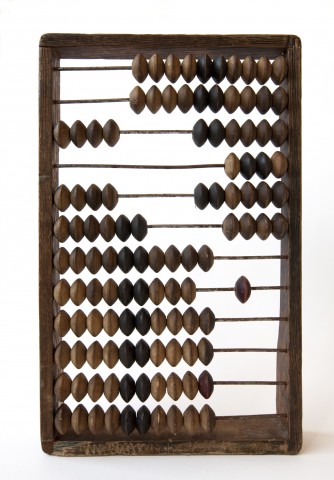




































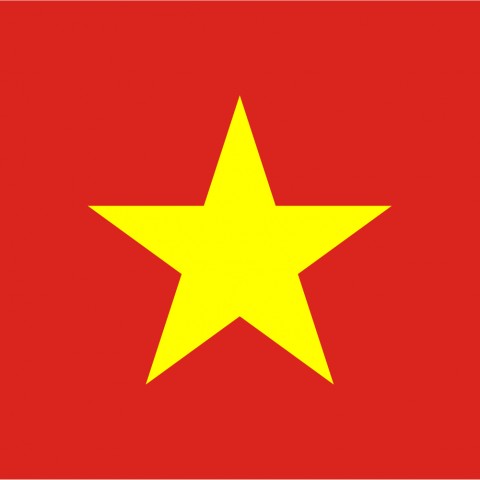
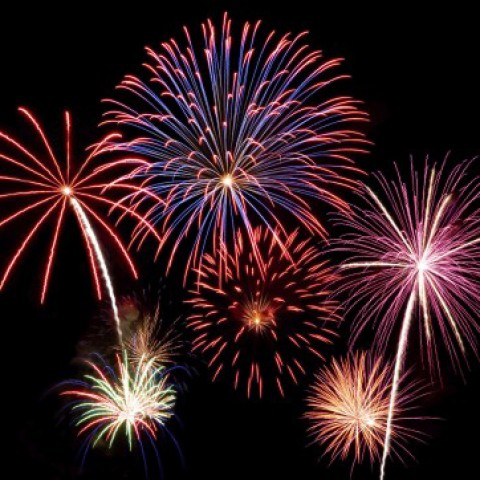

 In Vietnam, there’s a National Day of Remembrance each year. On this day, the country remembers and honors wounded Vietnam soldiers for their sacrifices during the country’s many wars.
In Vietnam, there’s a National Day of Remembrance each year. On this day, the country remembers and honors wounded Vietnam soldiers for their sacrifices during the country’s many wars. 
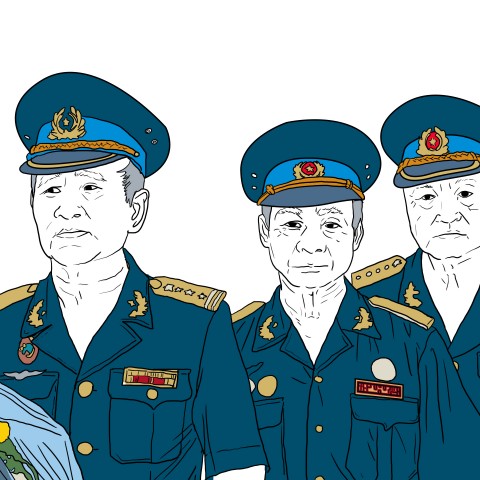
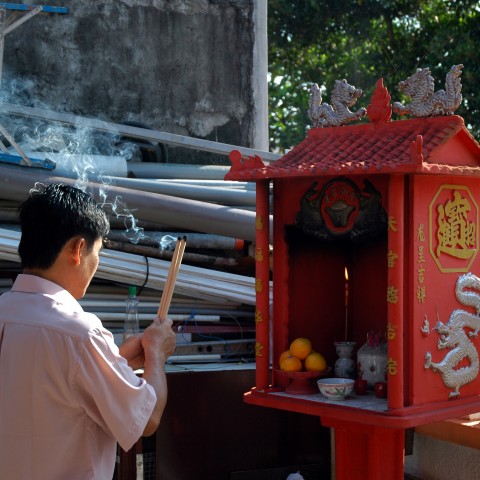









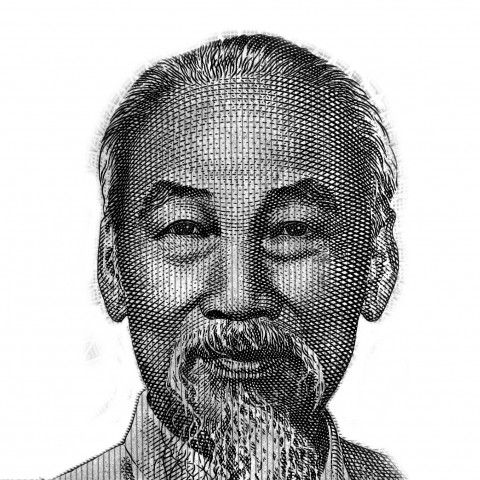
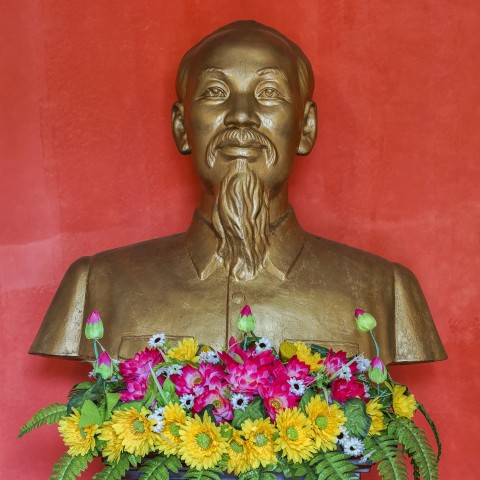


 Table of Contents
Table of Contents
